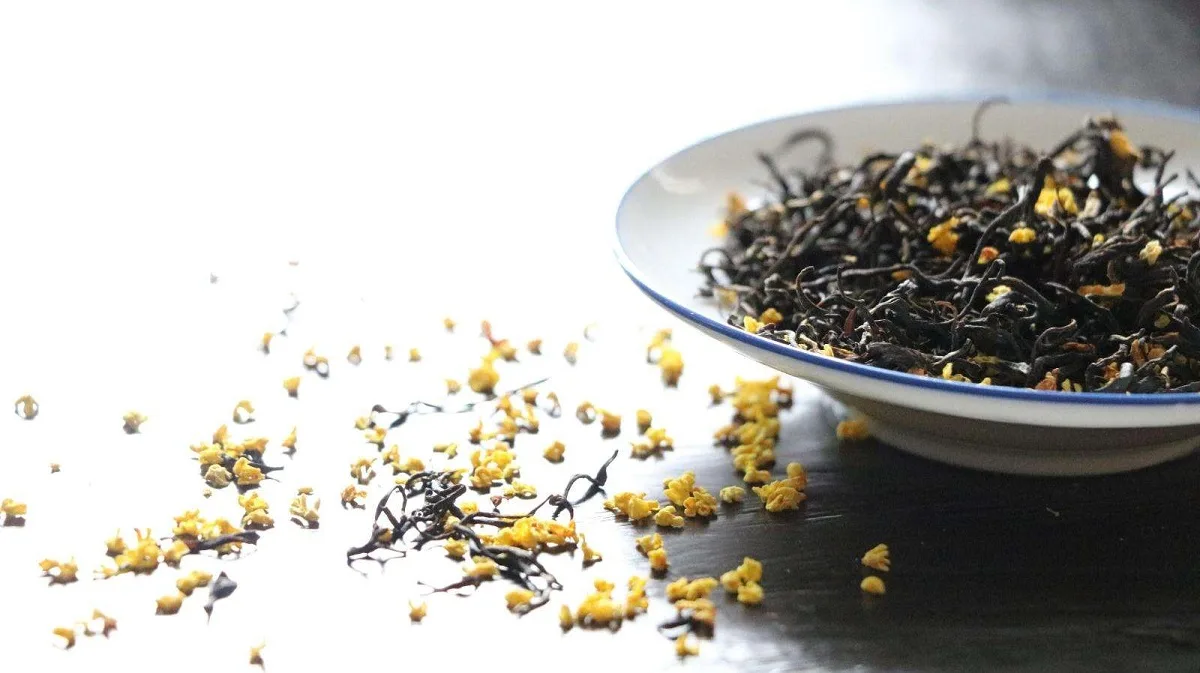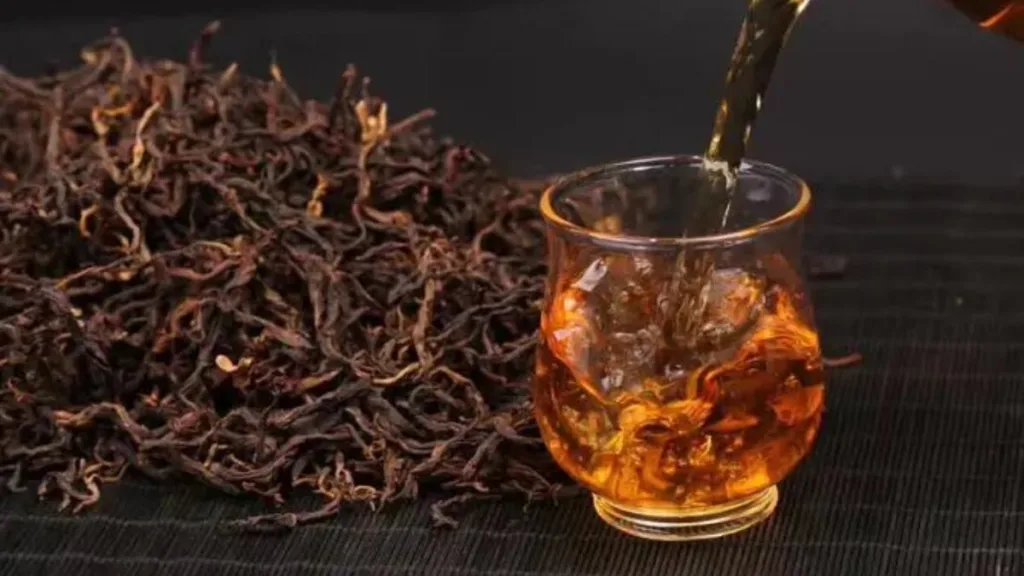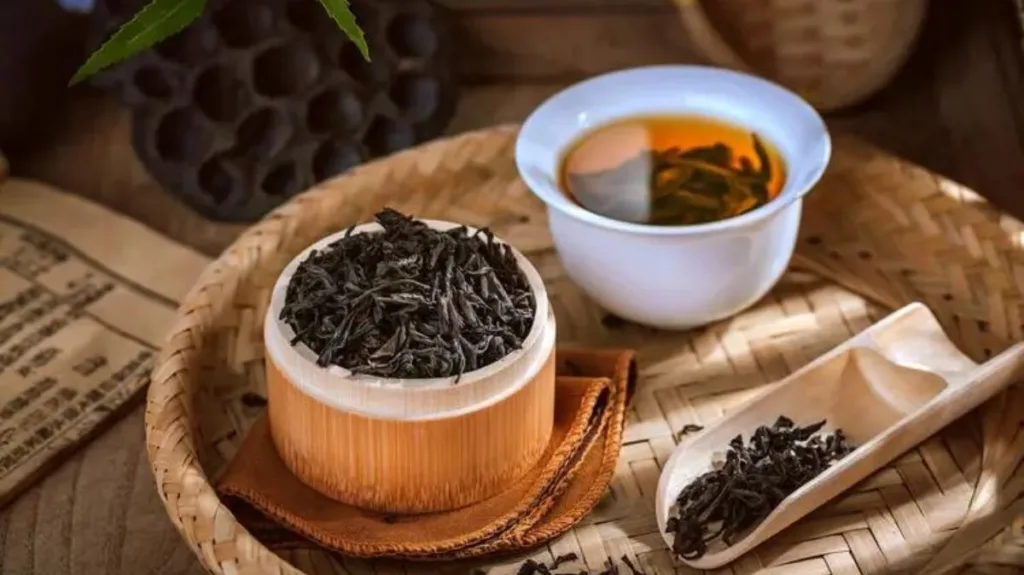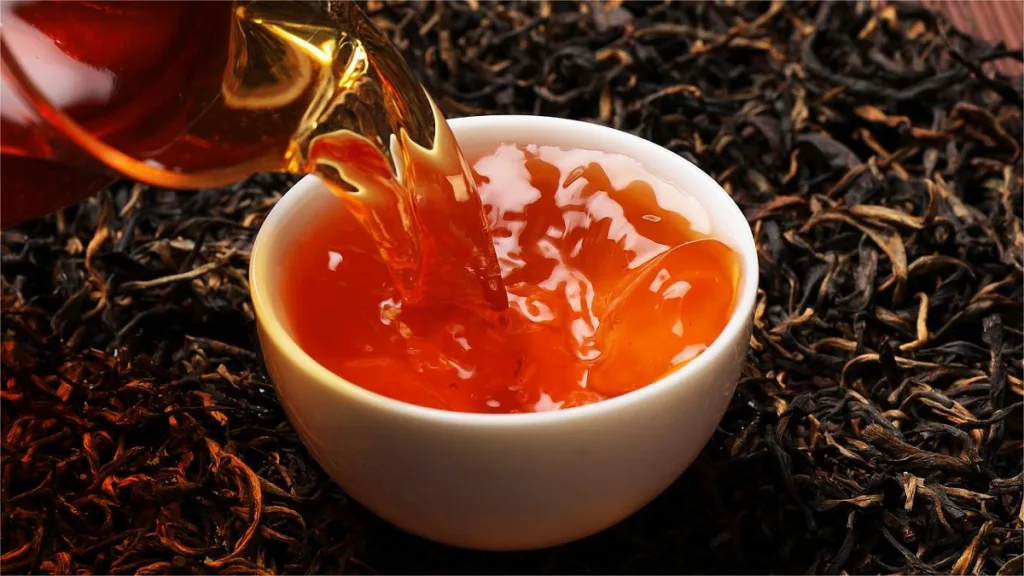Red Plum Black Tea, known as “Jiuqu Hongmei (九曲红梅)” or simply “Jiuqu Hong (九曲红),” is a traditional gem hailing from the West Lake region of China. This exquisite tea is a prized variety among black teas. Its name, “Jiuqu Hongmei,” is derived from the resemblance of its vibrant red color and fragrant aroma to that of red plum blossoms. The tea leaves are as delicate as fine hair, coiled in intricate shapes like silver hooks, often interlocking to form a ring, and adorned with golden fuzz. The deep black color, rich flavor, delightful fragrance, and bright infusion color make it a beloved tea choice for many.
History
Jiuqu Hongmei has a history dating back nearly 200 years, gaining fame over a century ago. As early as 1886, it earned a gold award at the Panama World Exposition. The tea is primarily produced in the areas surrounding Shuangpu Town, West Lake District, including Hupu, Shuangling, Zhangyu, Fengjia, Lingshan, Shejing, Renqiao, Shangyang, and Xiayang, with the Hupu Dawushan area renowned for its superior tea quality.
Legend has it that on a hillside near Chaoyangshan, next to the Liduo Pond in Hupu, Hangzhou, 18 tea trees grew in an exceptionally favorable natural environment. In the spring of 1929, during the Qingming Festival, a local farmer named Shen Renchun harvested a batch of small, tender Qingming tea leaves from these 18 tea trees. After careful processing, he produced approximately two pounds of high-quality Jiuqu Hongmei tea and personally brought it to the West Lake Expo held at Gushan in Hangzhou for evaluation.
When steeped in hot water, the tea leaves unfurled and danced in the cup, resembling small fish swimming up and down. The tea liquor exhibited a vibrant red color, and the aroma was rich and delightful. The tea leaves appeared bright red, resembling red plum blossoms in water, creating a visually captivating experience. This tea quickly captivated the many tea connoisseurs present. After a thorough evaluation by tea experts, it was praised for its sweet and mellow taste, akin to drinking longan fruit soup, with an enduring aftertaste. Its quality surpassed the renowned Anhui Keemun black tea, and it was crowned as one of China’s top ten famous teas at that time, achieving a place of honor among the country’s most esteemed tea varieties.
Brewing Method
Simple Brewing Method: Boil water and use high-quality porcelain or ceramic teaware, filling about one-fifth of the teapot’s capacity with tea leaves. Pour in the boiling water and steep for about 45 seconds. Then, pour the tea into a small cup. First, inhale the aroma, then savor the taste. The tea will fill your mouth with a delightful fragrance and leave a sweet aftertaste.
Gongfu Brewing Method: When preparing Jiuqu Hongmei using the gongfu tea method, it is recommended to use purple clay teaware or white porcelain teaware. The tea-to-water ratio is approximately 1:50, and the water temperature should be between 90–95°C.
For gongfu brewing, start by placing the tea leaves in a teapot according to the recommended ratio. Add water, steep for 2–3 minutes, and pour the tea into cups, ensuring a consistent tea concentration. Take your time to appreciate the tea’s aroma and flavor. Jiuqu Hongmei tea can typically be steeped 2–3 times. You can customize the flavor by adding lemon, milk, or honey according to your preference.
Health Benefits
Invigorating and Reducing Fatigue: The caffeine in Jiuqu Hongmei stimulates the cerebral cortex, enhancing alertness and concentration. It stimulates the central nervous system, making thoughts more acute and memory stronger. It also has a stimulating effect on the vascular system and heart, increasing heart rate to improve blood circulation, promoting metabolism, and inducing sweating and urination. These actions help eliminate lactic acid, a substance that causes muscle fatigue.
Diuretic: The caffeine and aromatic compounds in Jiuqu Hongmei work together to increase renal blood flow, elevate the glomerular filtration rate, dilate renal microvessels, and inhibit water reabsorption in renal tubules. This results in increased urine production, facilitating the removal of lactic acid, uric acid (related to gout), excess salt (linked to hypertension), and other harmful substances from the body. It can also help alleviate edema caused by heart disease or nephritis.
Detoxifying: The theophylline in Jiuqu Hongmei can adsorb heavy metals and alkaloids, precipitating and breaking them down. This is particularly beneficial in our modern world, where water and food can be contaminated by industrial pollutants.



